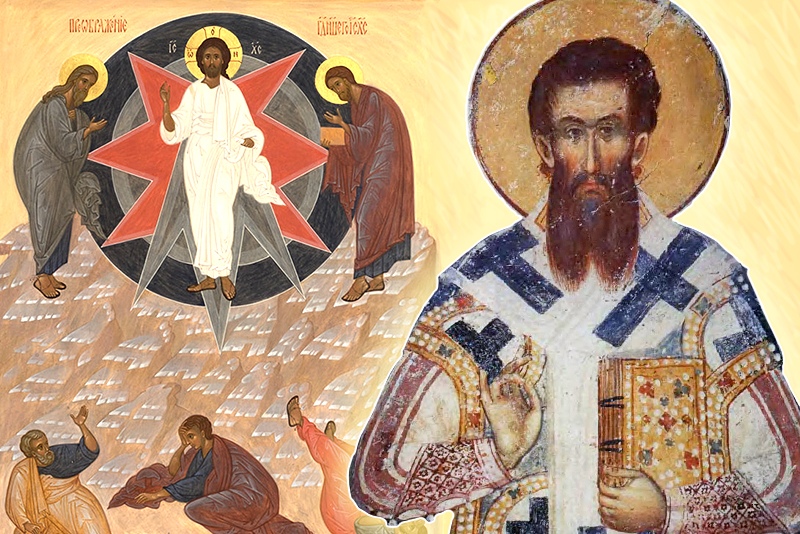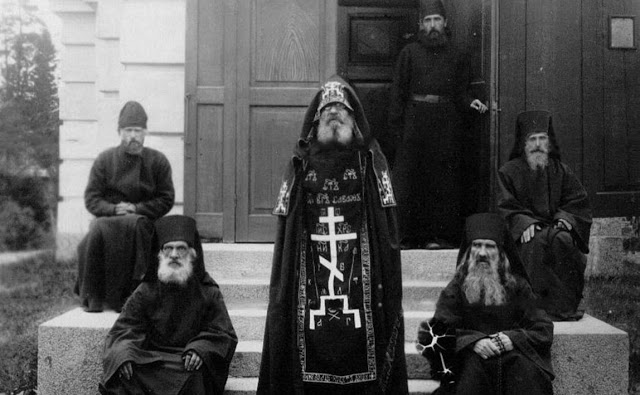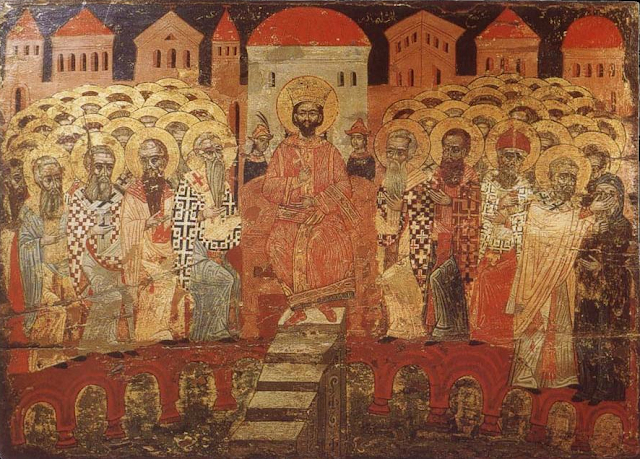
All Orthodox Christians are supposed to read the Holy Scriptures and learn God’s wisdom from it. However, if we do not just want to read formally one or two chapters of the Bible, but try to comprehend its meaning, then immediately we face difficulties in understanding the text. The huge passages of the sacred text, especially those of the Old Testament, cannot be fulfilled by us in practice, because we, Christians, are supposed to live not by the letter, but by the spirit: for the letter killeth, but the spirit giveth life (2 Corinthians 3:6). Often, we need to know some spiritual, allegorical meaning of certain orders so we can get the benefit from some passages we read. A great scholar of Scriptures, who sees the spiritual side of even the simplest images and plots, will help us in this. Let us give several examples from St. Maximus the Confessor’s “Questions and Doubts”.
What do five sacrifices mean: a sheep, a bull, a goat, a turtle-dove and a pigeon (Leviticus 1:10; 3:12; 1:14)?
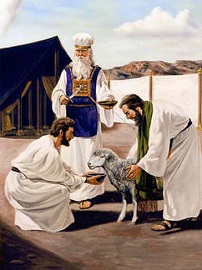
– According to one of St. Mazimus’s interpretations, the sheep symbolizes the reasonable part of the soul, the bull – the furious part, the goat – the lustful, the turtle-dove – chastity, and the dove symbolizes shrine. Thus, reading these places from the book of Leviticus, we do not just find out what animals were brought to God by the ancient Jews, but we are also called “to commit ourselves and one another, and all our life unto Christ our God” (Great Litany prayer). We are called to give God all of ourselves: our mind, our emotions, our desires, our integrity and our holiness, imbue all of this with the Holy Spirit and walk before God, using His gifts reasonably and gratefully. Maximus notes that if you look at each animal individually, you can get a lot of benefit as well. As a sheep brings wool, milk and a lamb to its host, the same way a person must bring good deeds (wool) to God, studying of nature (milk), for it is nutritious for the mind, and give birth to a new person through repentance within himself and bring it to God.
Why did the raven feed the prophet Elijah with bread in the morning, and with flesh in the evening (1 Kings 17: 6)?
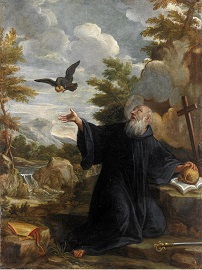
– According to St. Maximus, a raven can be understood as human nature, which became black through the fall of Adam. Elijah, sitting by the stream – is the mind of the ascetic, caught in the stream of temptations and asceticism’s hardships. The mind, through its fallen nature, feeds on bread in the morning, that is, simple food of natural knowledge of the world, and on flesh in the evening, that is, the Secret God’s Incarnation that took place at the dawn of human history. Or otherwise: Elijah, sitting by the stream, is the Lord, who through Incarnation entered the stream of our life. And the raven is pagans, blackened because of idolatry, who repented and started to bring the fruits of knowledge (bread) and the fruits of deeds (flesh) to Christ.
Why did the Holy Ghost descend ten days after the Lord’s Ascension (Acts 2: 1-4)?
– Some people, who know and practice Scriptures’ teachings, say that since the Angelic ranks are 9, the Lord, ascending as a person to His Father, devotes one day to each angelic rank: from the last to the most perfect. Angels also need God’s Incarnation, and this is what the Apostle Paul means when he says: “he might gather together in one all things in Christ, both which are in heaven, and which are on earth; even in him” (Ephesians 1:10). On the 10th day Christ came before the Father and sent down the Holy Ghost.
As you can see, St. Maximus’s interpretation is very original with a hint of a creative perception of the sacred text. The Bible can be interpreted in different ways: both literal reading and allegorical are appropriate here. And these approaches do not contradict, but enrich and complement one another. Therefore, we, guided by the teachings of the Church and getting into our tradition, should not be afraid to read the Bible, but feed our souls from this purest source of Orthodox faith.

